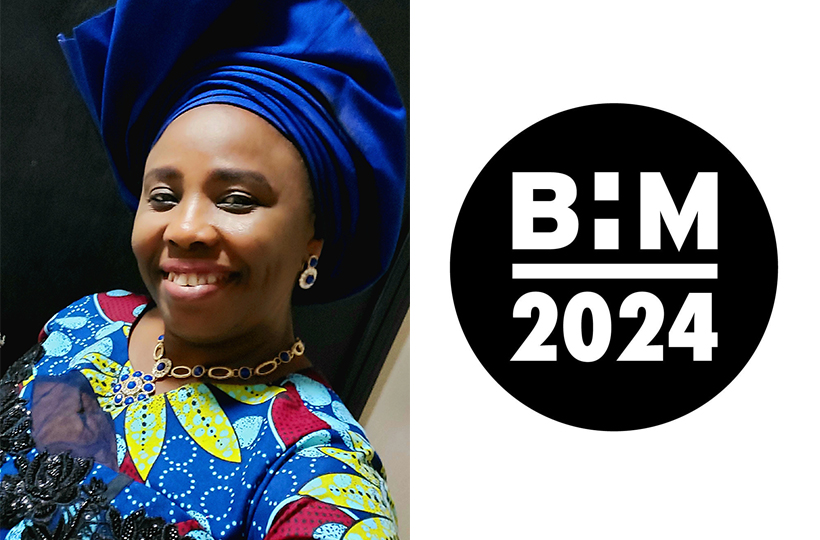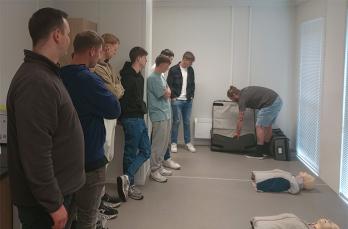
As part of October’s Black History Month, our Race Equality Network have been sharing the experiences of our Black colleagues and allies, as well as teaming up with the other gas distribution networks to host an event featuring guest speakers, open discussions and workshops.
In a personal blog, Adenike Johnson, Damage Credit Control & Debt Recovery Controller, has shared her experience of living in the UK after growing up in Nigeria.
I grew up in Nigeria, in a predominantly Christian home but I have extended family who are of other faiths. I moved to the UK in 2007 to join my now ex-husband.
I want to share my experience as a Black African in diaspora. Growing up in Nigeria, a country with diverse tribes, cultures and religions, has shaped and influenced my worldview and I want to talk about how I learnt to live and survive in England, which has a very different culture.
Nigeria, a diverse and vibrant country, is renowned for its rich cultural heritage and strong family ties. Our traditional values, cultures, and religions help shape who we are, and this is true of most Nigerians. The family unit is central to Nigerian society, and the extended family often plays a significant role in the lives of individuals and is a crucial support system. Family provides emotional, financial, and social support and often shares responsibilities for education, childcare and financial wellbeing. Respect for elders, parents and authority figures is deeply ingrained in our culture and this is considered essential for maintaining harmonious relationships and upholding our social norms.
A sense of community is very important, and we often work together to solve problems, celebrate achievement, and support each other during difficult times. We are a predominantly religious country, with Christianity and Islam being the most widely practiced religions. We are a very joyous people, and this can be seen in our music and lifestyles all over the world.
Moving to the UK
Moving to West Sussex with only my husband and a few family members and friends scattered over the UK for support was a culture shock and a real struggle for me initially. I missed the strong sense of community, feeling of belonging and shared responsibility which I had in Nigeria.
On the first street I lived in, I noticed people going about their business without greeting each other, totally ignoring their neighbours without a backward glance. My then husband was away at work, and I had nobody to speak to. I struggled to adjust to the cold weather (which I have now learnt to love, even more than the summer) and stayed indoors all the time. This situation shaped my view of life in the UK in the first few months.
But fortunately, I secured a role within SGN and developed working relationships with some of my great colleagues who became a support network. My religious belief as a Christian is important to me and I eventually found a local church which has become my family, especially during the challenging and difficult times of my life.
As a Black African, it was challenging and rewarding to navigate the intersection of Nigerian and British cultures. Language was a challenge I faced. While English is the official language in both Nigeria and the UK, there are subtle differences in how we speak, pronounce, and use the words. This can shape how I’m perceived and interacted with.
Other challenges which may come up for people moving to the UK:
- Cultural expectations sometimes clash, making people feel confused or under pressure to conform.
- Racism and discrimination are unfortunately still issues in the UK.
- Stereotypes can be harmful and influence perceptions and interactions. Sometimes Africans are deemed to be too loud and aggressive while some Africans see others as too cold or rigid.
- The constant negotiation between two cultures can sometimes lead to an identity crisis. It can be hard to develop a sense of belonging which can lead to mental health struggles.
- Faith can influence worldviews and how we navigate social situations. Our faith is the pillar of who we are.
- Navigating cultural differences can be challenging when dealing with family and friends from both cultures. They may have different expectations or perspectives – I’ve learnt to respect other cultures, norms and values while many have done so for mine.
But as well as challenges, there are also many joys.
Being bicultural offers a unique perspective. We can appreciate the beauty and diversity of both cultures and find meaning in their intersection. Bridging the gap between two cultures creates greater understanding and appreciation for both. This can help to break down stereotypes. Having a foot in both worlds has given me a unique perspective on global issues and events. There can also be a strong sense of community among those who share bicultural backgrounds. This can provide support, understanding, and a sense of belonging.
So how can you balance your identities?
My advice to others in the same situation is simple. Self-awareness – understanding what’s important to you about your own cultural values and beliefs – is so important. It’s also best to be open-minded about both cultures and have a willingness to learn.
Be clear and honest about your feelings and needs, and actively listen to others. Celebrate the differences and diversity of both cultures and find ways to integrate both into your own identity. Finally, build a support network, especially among others who share similar experiences.
Today, the United Kingdom is my home country. By embracing the challenges and celebrating the joys of biculturalism, I have developed a strong and resilient identity that draws on the best of both worlds.




